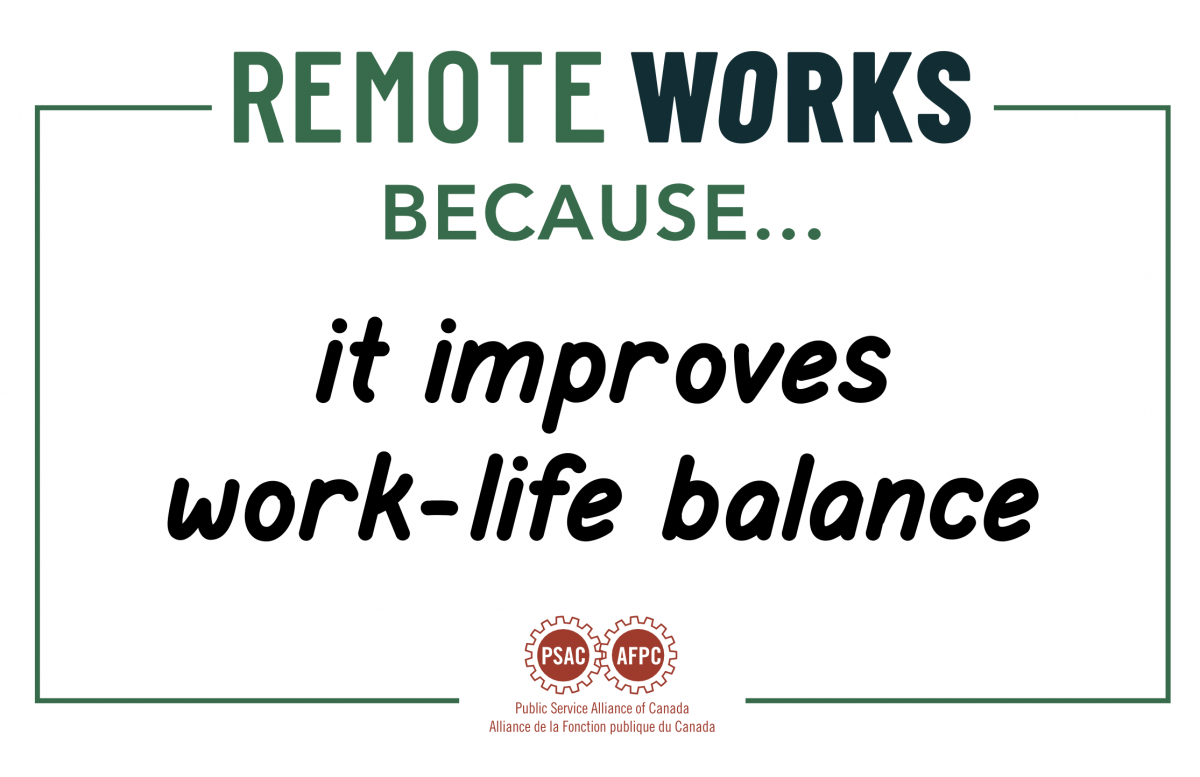New Access to Information documents show that the federal government’s decision to impose a rigid three-day in-office mandate was not based on data or research on productivity, despite clear evidence that hybrid work boosts performance. The documents reveal the government ignored their own evidence and steamrolled ahead with a plan.
Internal documents show that telework is proven to enhance productivity and improve employee well-being — something PSAC and other unions have long argued. Statistics Canada data also confirms that as hybrid and remote work increased from 2019 to 2023, public service productivity saw a net positive impact. Yet, none of this evidence was factored into the mandate.
“This government once had a vision to build a modern, productive, and inclusive public service, but they’ve thrown it all away for no valid reason,” said Sharon DeSousa, PSAC National President. “They had the research and results supporting a more flexible approach, but decided that butts in seats is more important than productivity. Their failure to follow the evidence on hybrid work is mindboggling.”
In 2022, the government was fully committed to flexible work arrangements, with internal communications highlighting a goal for a “distributed, flexible, talented, inclusive, productive workforce and welcoming workplace.” Yet in a complete 180-degree turn, the new mandate was implemented without any supporting data.
The documents also revealed that the government anticipated strong opposition from both employees and unions, yet they moved forward with the least popular option anyways. Treasury Board officials knew the policy would cause workplace disruptions but gave bargaining agents just one hour’s notice, despite months of planning.
PSAC is calling on the federal government to scrap the mandate, rethink its approach, and follow the evidence, which shows that hybrid work leads to higher productivity, better work-life balance, and healthier workplace cultures. The current mandate not only threatens productivity but undermines the values of fairness and collaboration the government claims to support.
“If the government really wants to be a leader in the future of work, it’s time for them to start making evidence-based decisions that benefit both workers and the Canadian population,” added DeSousa. “Arbitrary mandates and ignoring the data will only set us back.”
This article was first posted on the PSAC website.









